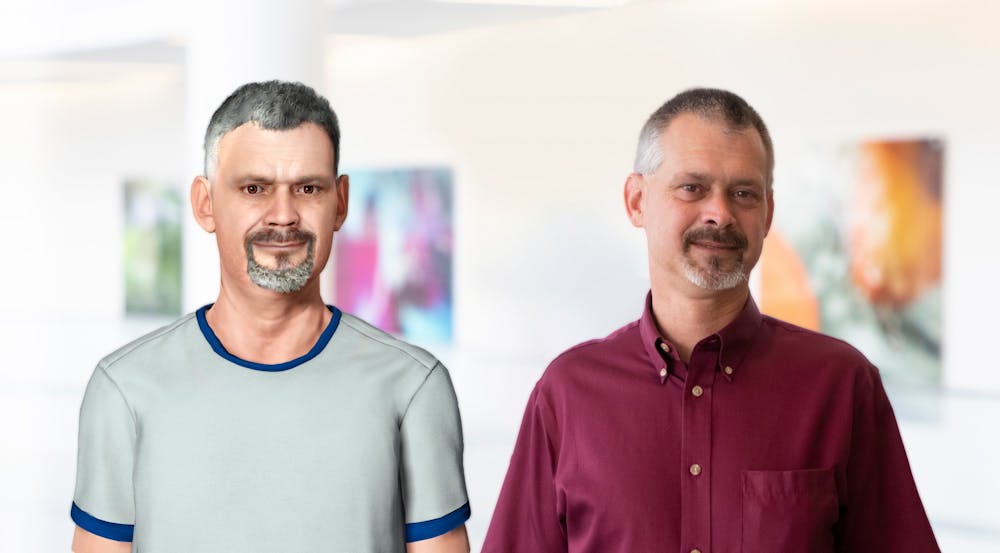A group of IU researchers and an alumnus developed a virtual reality experience to ameliorate substance abuse recovery efforts, according to an IU Research Impact article.
Since the end of the pilot study, the group received more than $4.9 million from the National Institutes of Health, the National Institute of Alcohol Abuse and Alcoholism and a research institute within the National Institutes of Health, according to the article. With this money, they will be able to continue research and improve the current technology.
Dr. Brandon Oberlin, an associate professor of psychiatry at the IU School of Medicine in Indianapolis, oversaw the pilot study that was published in Discover Mental Health on Sept. 15.
Oberlin said he got the idea while reading about an economic study where college-age students participated in an immersive VR world. He said the students interacted with a digital version of their future selves, and the study showed results of those students becoming more focused on the future and more willing to save money following the simulation.
“That struck me as being very relevant to addictions, which is what I study,” Oberlin said. “And there’s considerable weight of evidence that converges on that idea — that people with addictions have an out of focus feature and that the future has diminished impact on present decision making.”
In this pilot study, Oberlin is the senior author, Yitong (Iris) Shen, a graduate student in Oberlin’s lab, is the first author and Andrew Nelson is the second author of this pilot study. Oberlin collaborated with Nelson, an IU alumnus with experience in digital media and VR and the founder and production lead of startup company Half Full Nelson, since 2015.
Related: [University researchers in Indiana receive $5.1M grant to help study and prevent overdose deaths ]
The researchers asked for volunteers on campus who were in early recovery and willing to be interviewed. During these interviews, participants took personality and behavioral assessments.
Nelson’s team then used high-resolution photos and voice samples of each participant to develop the VR experience using a script for when the volunteer uses the headset again.
Oberlin said they compiled enough research to apply for federal funding and local funding that was awarded by the Clinical Translational Research Institute.
When the volunteers put on the headset, they were able to interact with a digitalized avatar that resembles them. From the script and assessments conducted earlier, Nelson and the team were able to make the VR mimic and emulate the mannerisms of the subject to a certain degree. In the experience, the subject can speak and hear their avatar talk about alternate futures.
After 30 days, 18 out of 21 participants reported that they abstained from all drugs and alcohol. The other three participants used considerably fewer drugs and alcohol than before the treatment.
“In all subjects, we saw an increase in future self-similarity after they had interacted with their future selves in virtual reality,” Oberlin said.
In other words, the participants felt more like or could relate to the future versions of themselves, suggesting a deeper connection since experiencing the VR technology.
“There’s kind of this ability to empathize with your experience and step outside of yourself, and that’s cool for art, but it’s potentially very powerful in these medical applications as well,” Nelson said.
Nelson and Oberlin founded Relate XR, a startup company for therapeutic technologies. The company was recently awarded a Small Business Technology Transfer grant by the National Institute on Drug Abuse based on their work in the pilot study. The STTR incentivizes small businesses to prioritize research and development with commercialization in mind.
“We’re in the early stages, and there’s a mix of machine learning and hand crafting, but as we go through these new clinics trials, we will continue to try and improve the process and have something that a clinician could use as a service with minimal turn around,” Nelson said. “We’re excited about the potential to scale in that way.”
Related: [IU School of Medicine receives $48.8 million grant toward Alzheimer's research]
Dr. Lakshmi Sastry-Dent is the director of technology commercialization at the IU Innovation and Commercialization Office, which works with faculty through the entire stage of commercialization by helping with licenses and connecting them with resources for fundraising and networking. ICO helped Oberlin and his team to receive the STTR grant after Oberlin filled out an invention disclosure form with the office.
“Our mission is to transfer innovations from the lab to the marketplace for the benefit of society, for global economic impact, as well as for the benefit of all IU researchers,” Sastry-Dent said.
Sastry-Dent said VR technology was unique because it’s a noninvasive technology that can be repeatedly administered, motivating those in the early recovery process.
The technology is also appealing to the younger generation because of its tech-based foundation. The study shows potential with any substance use disorder, she said.
Sastry-Dent was able to try on the headset and experience VR, in which she sat on a park bench. She said it looked very real, and she felt like she could even smell the outdoors.
Currently, she said their VR technology is more standardized, but perhaps in the future, they can explore other settings and ambiances based on the individual's lifestyle.
Sastry-Dent said it can be a long and difficult process to translate technology from a lab to something that can be sold, but she hopes Oberlin and Nelson’s work becomes a mainstream tool used routinely in the recovery community.
“It works best when there is engagement from the faculty and their partners, and they’ve been great to work with,” Sastry-Dent said. “They’re very committed, diligent, and they have the right expertise and right intent to move it forward.”




